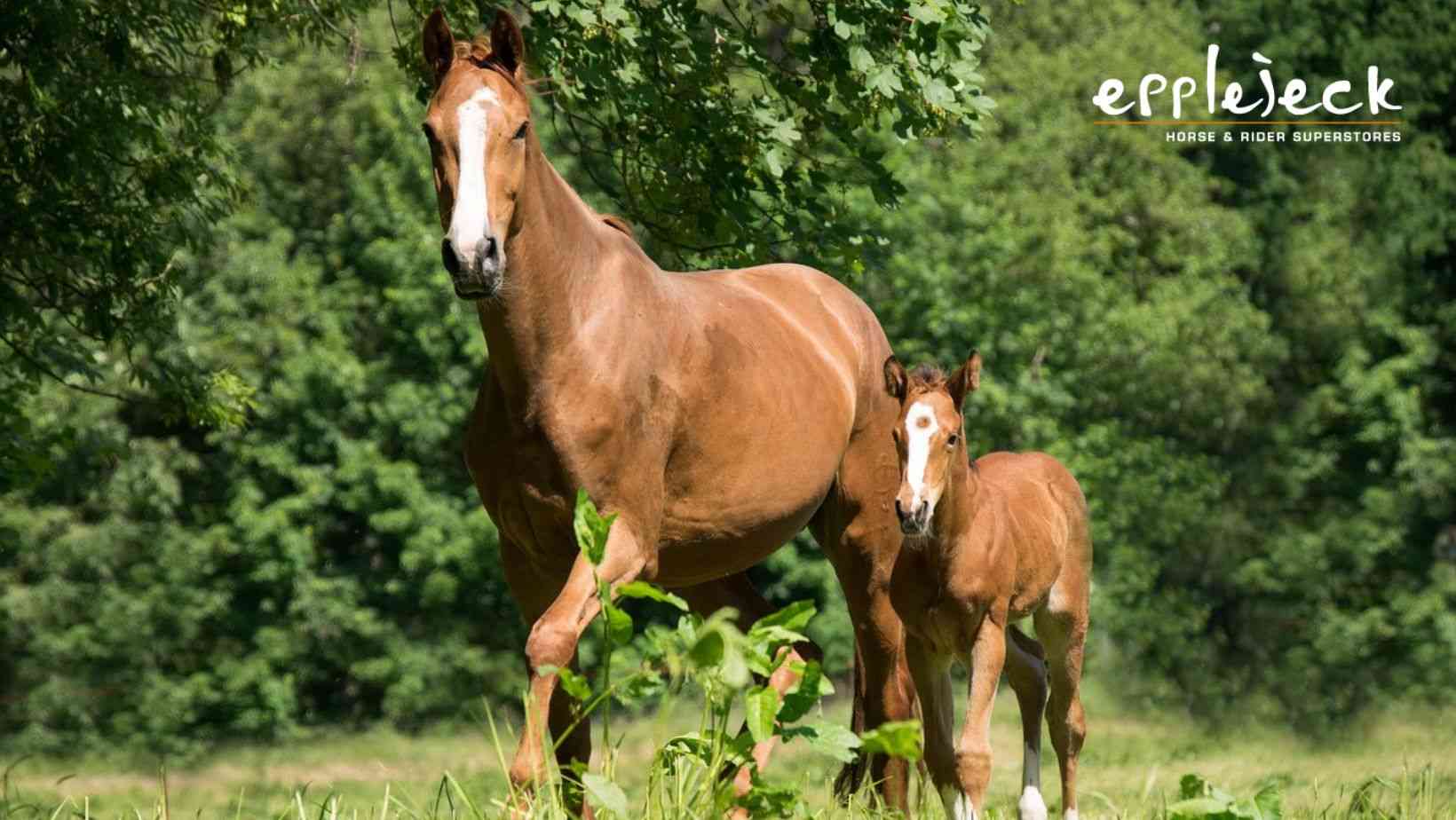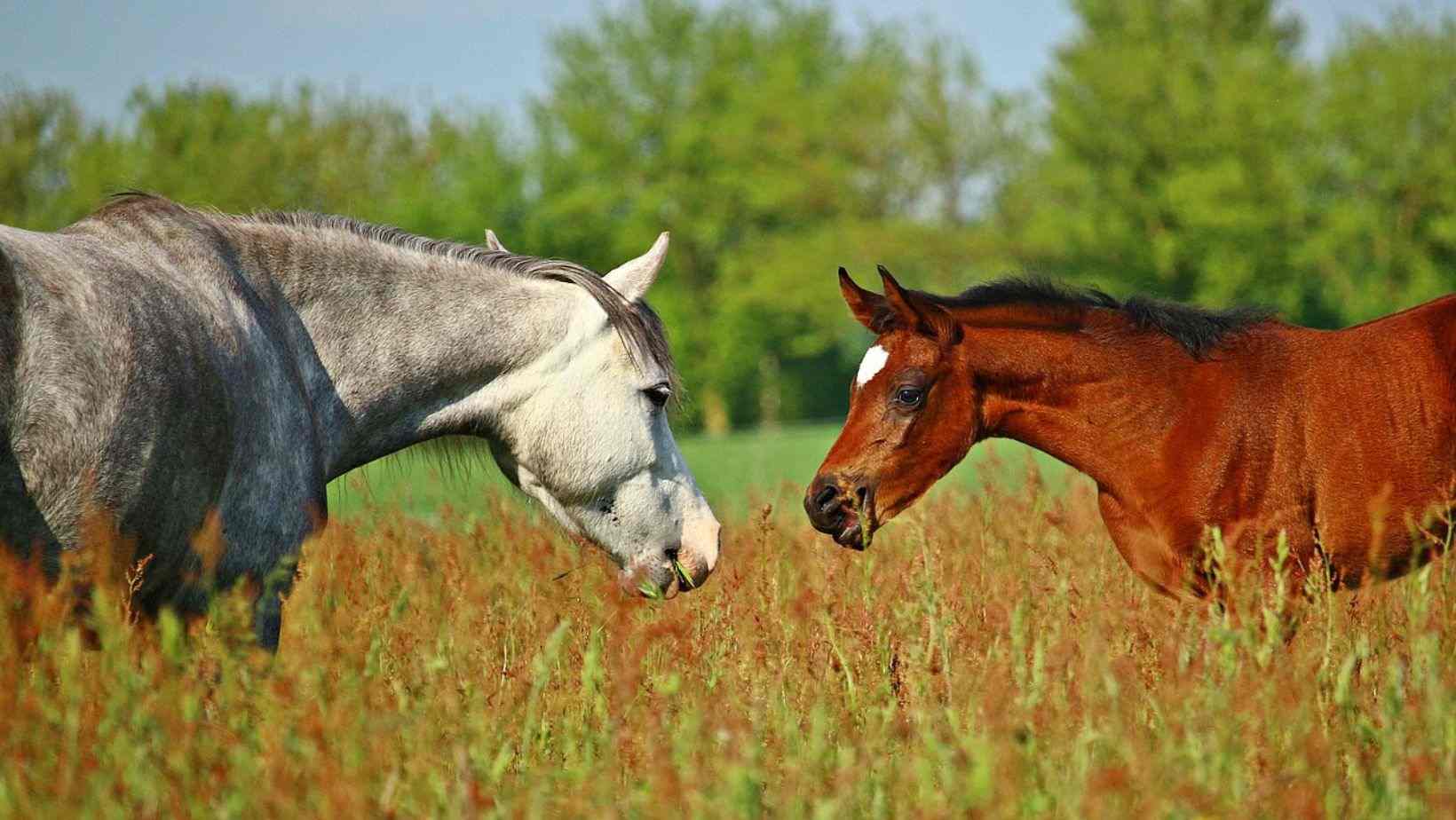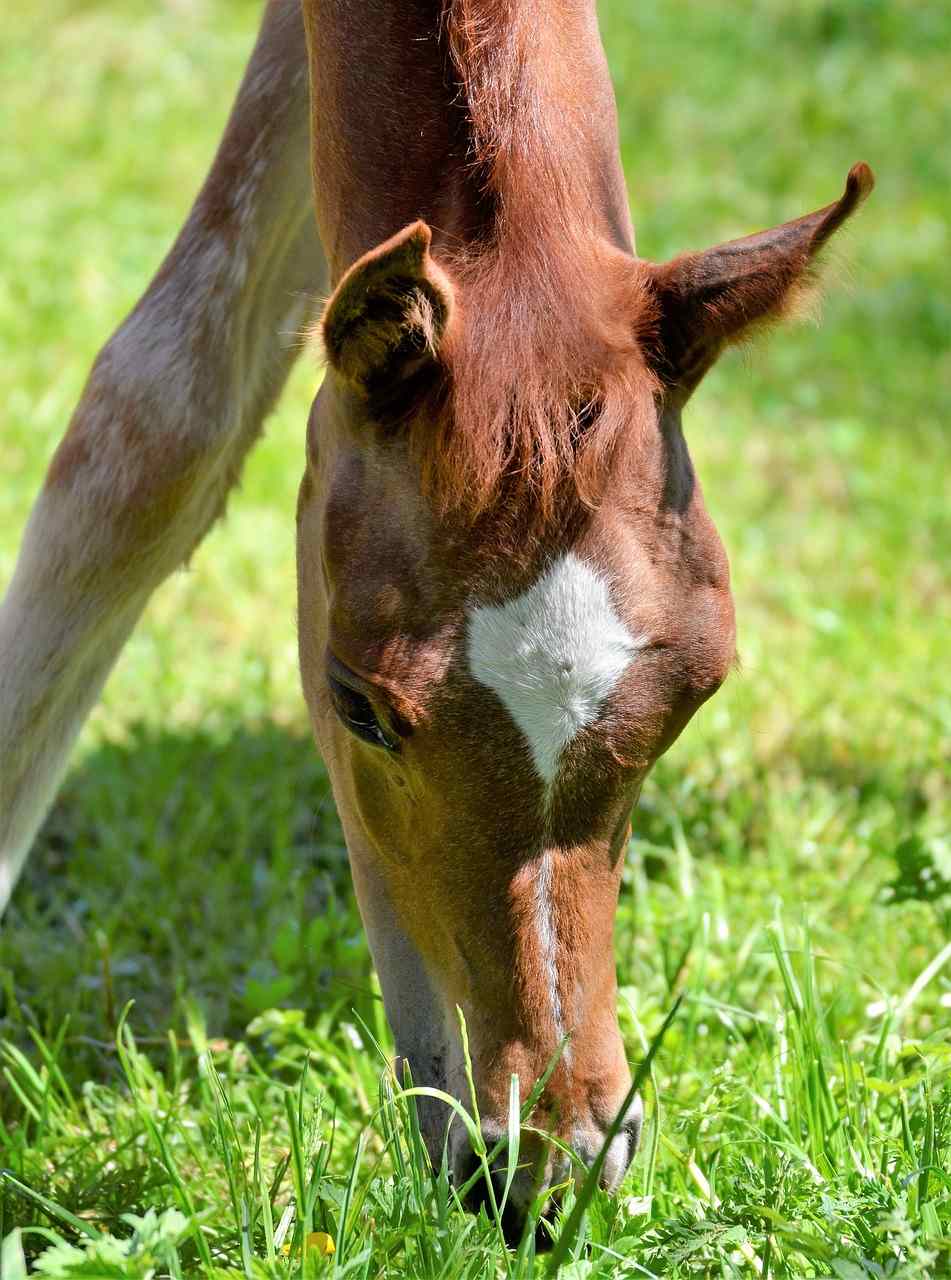Are you planning to wean your foal soon? Is this your first time weaning a colt, or are you looking for tips? This blog provides all the ins and outs of weaning a foal.

Weaning is a natural process that you can observe in nature as well. There comes a time when the foals leave the group. Even if you breed a foal, there will come a moment when it has to stand on its own feet. This process can be pretty stressful for both the mother and the foal. You can do a few things to make the process as safe and smooth as possible.
When do you wean a foal?
Deciding when to wean a foal can differ, but usually, it is suggested to do so when they are between four and six months old. The precise timing relies on several factors, such as the
foal's health, growth, and individual requirements. These are some signals that show it's time to wean a foal:
Age: Most foals are ready to be weaned at four to six months old, allowing them time to learn to eat and become more independent.
Weight and growth: The foal should have a healthy weight and good weight gain before
weaning to ensure a smooth transition to solid food.
Mother-foal relationship: Observe your foal's behaviour with the mare. If it starts exploring, grazing independently and appears less dependent, it's ready for weaning.
Is the mare pregnant again?
Caring for a newborn foal takes a lot of energy from the mare. The current foal is often weaned earlier to allow her to rest and prepare for the next foal.
There are several methods for weaning a foal, and the choice depends on your specific situation and goals. Here are some common approaches:
Gradual weaning: This approach involves separating the foal from its mother through a fence while remaining in the same environment. The foal can still interact with its mother, but nursing is no longer possible. This allows the foal to get used to the absence of maternal milk while still maintaining social contact.
Intermittent separation: In this method, the foal is completely separated from its mother for a short period, usually several hours to a few days. Although it may cause stress to both the foal and the mare, it can aid in the foal's rapid development of independent feeding skills.
Immediate separation: Abruptly separating the foal from the mare and keeping it alone can cause stress for both animals. To avoid this, it is crucial to ensure the colt is already comfortable eating solid food before using this method.
Your management practices and the personalities of the mare and foal may influence the method chosen for weaning. It is crucial to closely observe the mare and foal throughout the weaning process to ensure their health and offer any necessary assistance or modifications.
Pros and cons of weaning methods
Each method has its advantages and disadvantages. Below, we list them by the weaning way:
Gradual weaning:
- Pros: Less stress for the foal and the mare, maintains social contact.
- Cons: It may take longer to achieve complete independence.
Intermittent separation:
- Pros: Faster transition to independent feeding.
- Cons: It can be stressful, and monitoring the mare and foal is essential.
Immediate separation:
- Pros: Rapid independence for the foal.
- Cons: It can be very stressful for both, significant to closely monitor the mare and foal and provide care as needed.

What should I watch for when weaning a foal?
During the weaning process of your foal, there are essential considerations to remember, regardless of the chosen method.
Ensure the foal can access high-quality food and clean drinking water. Assist the foal in learning to eat roughage and pellets if necessary.
Monitoring: Keep a close eye on the foal during the transition period. Watch for signs of stress, illness, or behavioural changes.
Vaccinations and deworming: Ensure the foal is up-to-date with vaccinations and deworming as a veterinarian advises.
Social interaction: Continue encouraging social interaction between the foal and the mother, even after weaning. This can help reduce stress for both the foal and the mare.
Consult a veterinarian: Always consult a veterinarian for guidance and advice when weaning your foal.
Weaning a foal is a crucial stage in its growth and development. Proper guidance during the transition period sets your foal on a path to a bright future.
